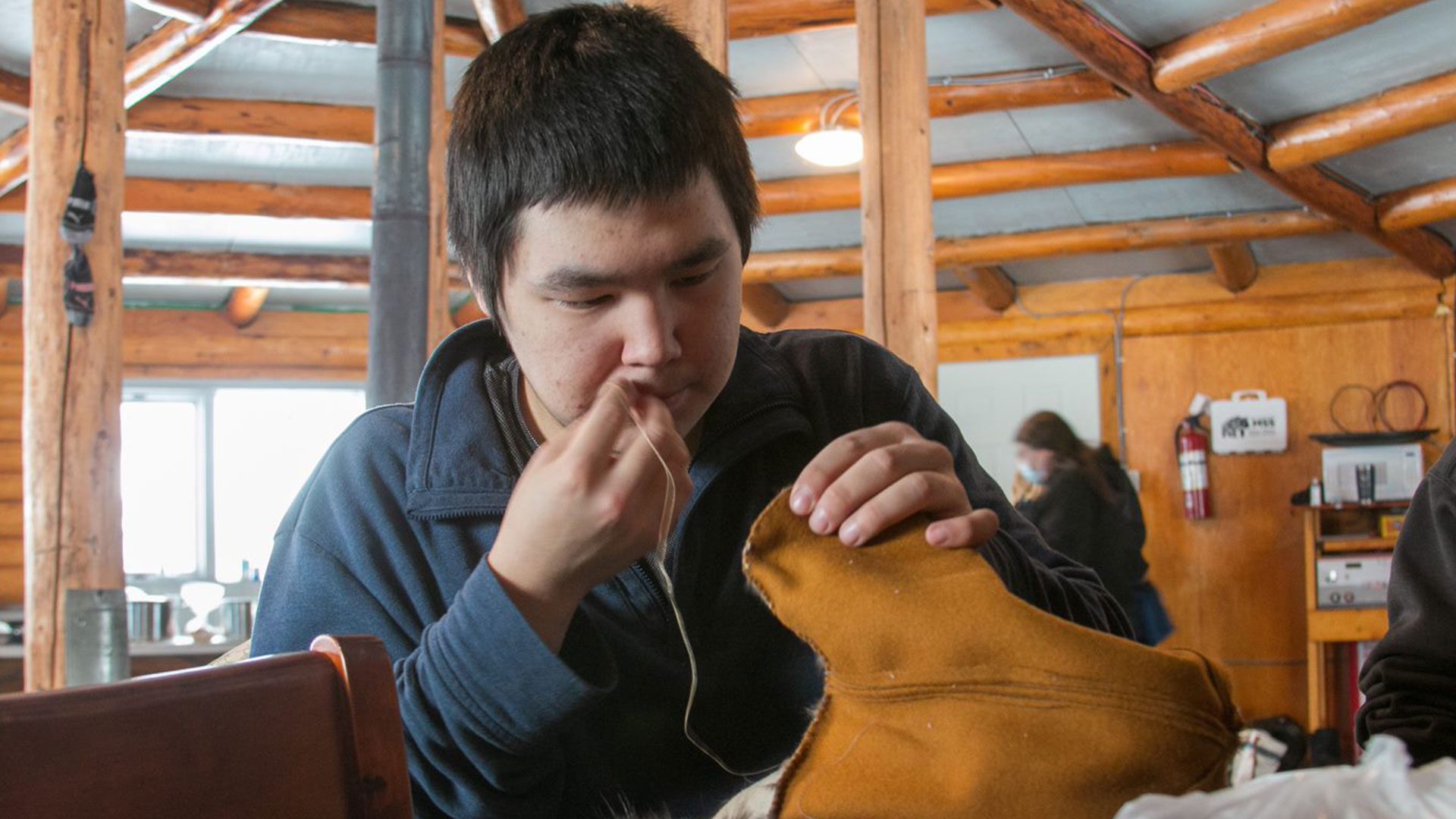Mark Kununak sits with his teacher trying to find his rhythm on a hand drum. This is the first time he’s tried dene drumming.
“It’s like a heartbeat,” he says to his mentor.
Kununak is getting the opportunity to drum during a youth conference at the Telemia Camp near Zhahti Kue (Fort Providence), N.W.T.
“When we were on the ice road like just walking on the river like the trees coming up from both sides was so nice because we got no trees where I’m from,” Kununak said.
Hailing from Gjoa Haven in western Nunavut, Kununak, 16, is one of nearly 50 youth who participated at the conference hosted by local NGOs and Indigenous governments.
Its goal was to bring together youth from northern communities to share common histories, traditional teachings and discuss current experiences.
“I wanted to go out here because it sounded like such a great experience and I really like meeting new people, getting to know different cultures,” he said.
Isabella Arafat-Aliu, 14, sat amongst new friends as they quietly stitched together fabric for a trapper-style beaver hat.
“I wanted to learn more about the community and how they cope with the weather because it’s harsh, like really harsh,” Arafat-Aliu said. “I heard we are going to be bison hunting and snowmobiling, things I’ve never tried before so I really wanted to be part of that.”
The conference also looked to build relationships between Indigenous and non-Indigenous participants as they discuss topics such as reconciliation, ally-ship and conflict resolution.
“We had the elders pray and talk about their life experiences and some people didn’t want to smudge but we were still able to watch the giving ceremony, where they give offerings to the dead,” Arafat-Aliu said.
“It was fun and educational because we got to learn their language and how they use the drums to show different meanings and emotions.”
Located on the traditional territory of the Dehcho dene and Métis, youth were also active participants and contributed to camp chores like setting nets and gathering wood.
“It’s seeing what the youth would best like to do and being on the land where they can be very free I guess and not worry about emotional and physical work that you need to do in town for school, work and other things,” said Olivia Dobbs.
Dobbs, who works with the Yukon First Nation Education Directorate, attended as a chaperon but hoped to take ideas back to her region to create a similar youth gathering.
“I do feel like there are more traditional camps being presented and also the First Nations school board took over the school board so they are really trying to implement some of those traditional practices,” she said.
For Kununak, the camp was comforting. He said he was able to contribute to conversations around decolonization and just be himself.
“A lot of First Nations went through colonization and I just want to learn how they learn to deal with their trauma and learn to forgive. I want to hear about those topics and share in my hometown,” Kununak said.










